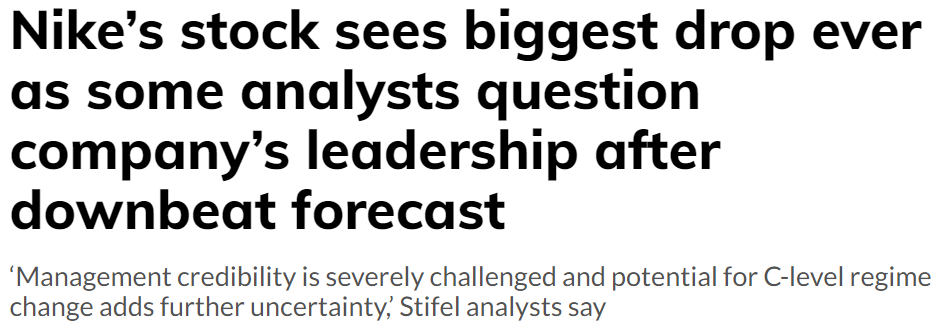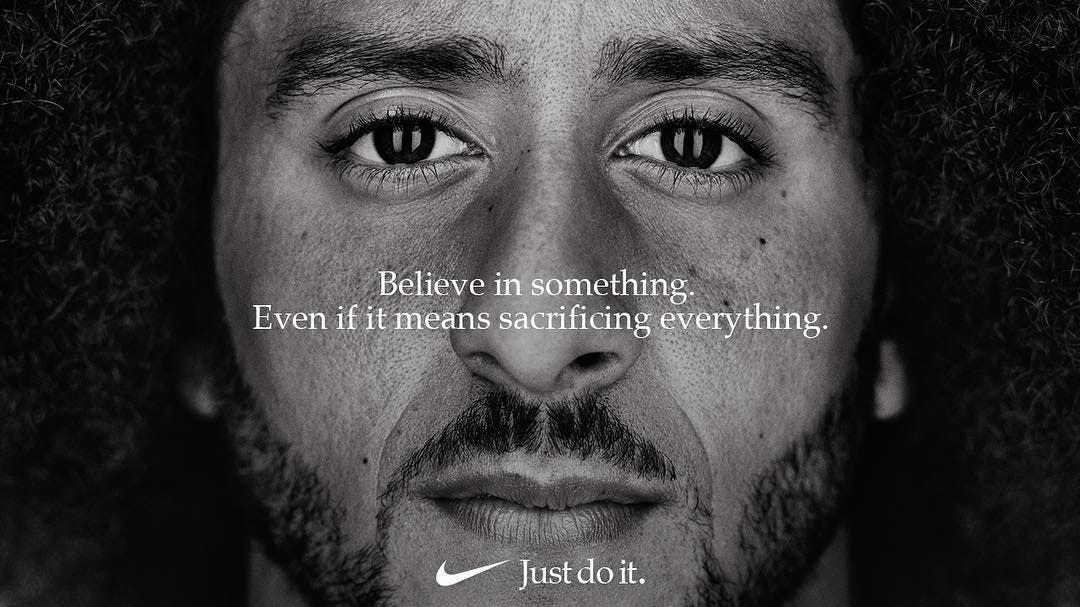#17 The end of wokeness?
Nike’s new marketing campaign signals a potential turning point for the "woke" agenda
Winning isn’t for everyone
Ahead of the Paris Olympic games, Nike has gone full blast on their most valuable asset: star athletes in marketing campaigns that inspire us all.
However, the new campaign, titled “Winning isn’t for everyone | Am I a bad person?”, signals a potential pivot from the company's more socially conscious messaging, the hallmark of some of its recent campaigns: “For once, don’t do it (racism)”, “A feel for every you (inclusiveness)”, “One day we won’t need this day” (Women International Day) or “This is us” (breaking stereotypes)
Your true purpose
For the 1996 Olympic Summer Games in Atlanta, Nike debuted a campaign that immediately made an impact. Billboard, magazine ads, and a TV commercial starring basketball star Lisa Leslie, all featured the tagline, “You don’t win silver, you lose gold.”
Such competitive taglines have been Nike's ethos since its early days. Guided by a strategically designed purpose – “bring inspiration and innovation to every athlete in the world”, Nike has always been clear on how they bring value to the world (and to their shareholders).
Such clear purpose not only differentiates Nike from other “sports’ apparel players” (e.g., Decathlon's purpose is to “Make sport accessible to the many”), but also represents the foundations of Nike’s business model :
Nike’s core competitive advantage: The signing of star athletes and their unique winning mentality that inspires us all (to do and buy “sport”)
Nike’s growth model: Leveraging Star Athlete’s influence, they expand into different categories within the sport (i.e., starting with shoes, then to clothes, then to equipment)
Activism is not your purpose
Over the past few years, beginning with a brilliant campaign featuring Colin Kaepernick, an NFL quarterback-turned-activist, Nike has consciously and strategically positioned itself in the “diversity and inclusiveness” arena, seamlessly linking social causes to its ethos and actions by promoting underrepresented athletes.
A great move - Creating brand differentiation, driving emotional connection with its consumers, and engaging with its employees. True & powerful activism.
Yet, one could argue Nike has taken it a step too far. Nike did not link its brand to a social cause. Nike redefined its entire brand, ethos, and purpose through a social cause.
And this is a very risky move. Especially, when it means disconnecting yourself from your competitive advantage (winning athletes) and your winning business model (inspiring consumers through winning athletes)

The end of “wokeness”?
The question is why. Why did Nike take it so far?
And the truth is Nike is not alone. Nestlé recently had to scale back its recycling goal. Unilever abandoned its pledge to pay all direct suppliers a living wage by 2030. Tech companies are cutting back on their DEI teams.
Don’t take us wrong though. We praise corporate bravery and great intentions, recognizing and demanding the unique potential companies have in tackling social issues.
Yet, sustainability needs to be sustainable. And the only way is by striking the right balance between financial and societal impact.
And, to us, Nike’s recent campaign (Winning isn’t for everyone) illustrates better what Sustainability needs to be for companies. It symbolizes the harmony between business & impact: Staying true to their successful business model (inspiring through winning athletes), they’ve incorporated a social cause (featuring under-represented minorities).
A consistent purpose and selective brand activism. Not the other way around.
No more extreme wokeness. No more greenwashing.
Balance.
Learn more about 3X:



